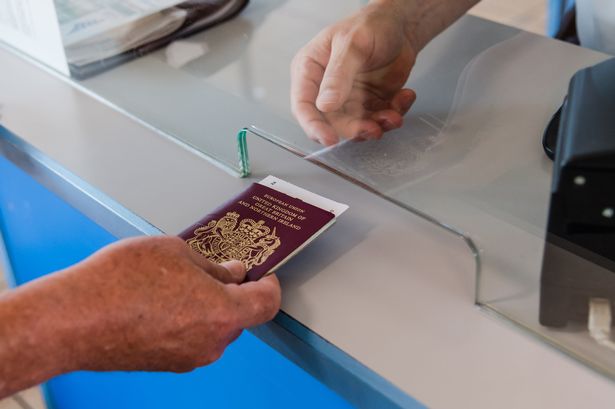It’s important to make sure you know your passport is in mint condition before travelling as many people don’t realise they could be permitted from entering the country
When going on holiday there are a few important things to remember such as your passport and visa – but few people know one mistake that could stop them from entering a country.
Many people check their passport expiry date before travelling, making sure it’s got enough time on it before it runs out, but most people don’t realise the condition of their passport can be just as important.
According to Experience Travel Group passports with worn corners, tears, water damage or even loose pages can result in refusal of entry even if your passport is still valid and your visa approved.
READ MORE: Drivers warned social media ‘car wash trend’ could lead to thousands in repair billsREAD MORE: London Underground and bus passengers urged to stop one ‘annoying’ habit that others hate
The experts say your passport isn’t just a form of identification, it’s a legal travel document and border officials are trained to look for signs of damage, tampering, or wear and tear that could make a passport unreadable or raise doubts about its authenticity.
“What many travellers don’t realise is that immigration officers have the final say at the border. Even with a valid visa and an in-date passport, an officer can still refuse you entry if they believe the document is damaged. Airlines also carry out checks before boarding and can deny travel altogether if they suspect your passport will be rejected on arrival,” they explained.
This means a damaged passport can therefore be just as harmful as an expired one and even minor flaws such as smudges, bent corners or faded pages can derail your journey.
There are some countries which are stricter than others. These include:
- Indonesia: Travellers have been turned away at the border over tears as small as a centimetre. Even with a valid visa, any damage to the passport can lead to immediate deportation or refusal of entry. In some cases, passengers were denied boarding at their departure airport when airline staff spotted minor damage.
- Thailand and Vietnam: These countries have also denied entry to passengers whose passports appeared dirty, water stained or had peeling laminate. Border officers treat any visible damage to the photo page especially seriously, as it can interfere with identity checks. Travellers have been put on the next flight home in such cases.
- United States: US border officers rely heavily on biometric scanning and machine-readable zones. If the passport chip cannot be read, or if the data page is scratched, smudged, or water damaged, the document may be deemed invalid. Even if the chip works, visible physical damage may be treated as suspicious and raise concerns about tampering.
- Australia: Travellers are advised not to attempt travel with a significantly damaged passport, including torn or missing pages, or visible damage to the cover or spine. Airlines flying to any destination may deny boarding if they believe the passport could be rejected on arrival, to avoid complications or penalties.
- United Arab Emirates: The UAE has some of the most rigorous border checks in the world. Passports with loose binding, detached pages or deep creases are often refused. Travellers have reported being stopped from boarding in their departure country when airlines identified likely issues for UAE immigration.
- Airline checks: Airlines act as the first line of defence, as they face penalties for carrying passengers with unacceptable documents. As a result, even minor tears or stains have led to boarding refusals. Travellers have been denied flights because of small rips, coffee stains or faint watermarks on their passports.
It may seem extreme, but passports contain advanced security features, including chips, holograms and machine-readable codes so damage to these elements can make it difficult for scanners to confirm the document’s authenticity. Border officers also look out for tampering and forgery and a tear, water spills or a separated spine could suggest that the passport has been altered.
Even if the damage is innocent, officials are unlikely to take the risk particularly in countries with strict immigration controls. According to Experience Travel Group: “Travel should be about discovery and relaxation, not unexpected setbacks at the border. By taking just a few minutes to check the condition of your passport before departure, you can avoid a ruined trip. It’s a small precaution that makes a huge difference.”
Do you have a story to share? Email niamh.kirk@reachplc.com
